-
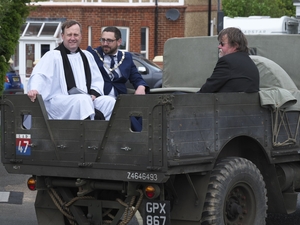
13 May 2025
80th anniversary of VE Day marked on Isle of Wight
Our clergy, churches and communities on the Isle of Wight were involved in a variety ... read more
-

9 May 2025
Pupils mark VE Day anniversary at Sarisbury Junior
Pupils from Sarisbury CofE Junior School celebrated the 80th anniversary of VE Day by hearing ... read more
-
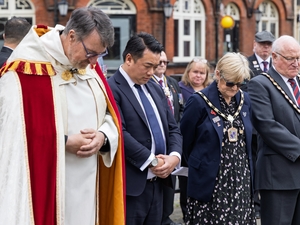
8 May 2025
Civic service at Havant to mark VE Day anniversary
The Mayor of Havant and Havant MP Alan Mak were among those who laid wreaths ... read more
Civic service at Havant to mark VE Day anniversary
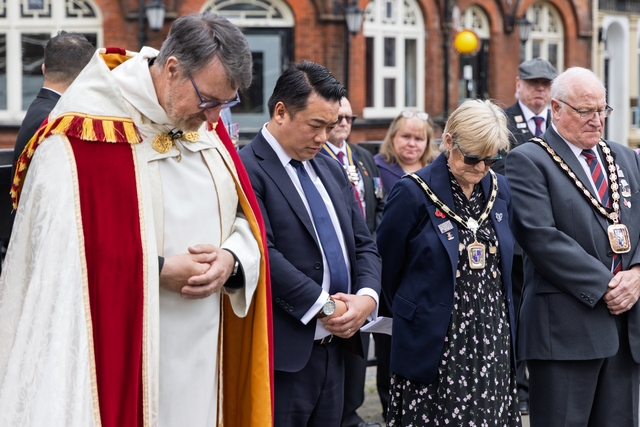
IT was a chance to honour those who gave their lives - and to work out how to work together for peace.
Worshippers gathered at St Faith’s Church in Havant for a service to mark 80 years since VE Day in 1945, the end of the Second World War in Europe. The Mayor of Havant, Cllr Peter Wade, his consort Janet Wade, and Havant MP Alan Mak were among those attending, along with Armed Forces from 16 Regiment (Royal Artillery), based in Thorney Island.
The service included hymns, prayers, an Act of Remembrance and a sermon by the rector, Canon Tom Kennar. Alan Mak MP read from John 15 and Battery Sergeant Major Barry Pryor, of 16 Regiment read from The End of War in Europe by Ernie Pyle. The Rev Sandra Haggan led the intercessions. Dignitaries then processed outside to lay wreaths at the war memorial outside the church.
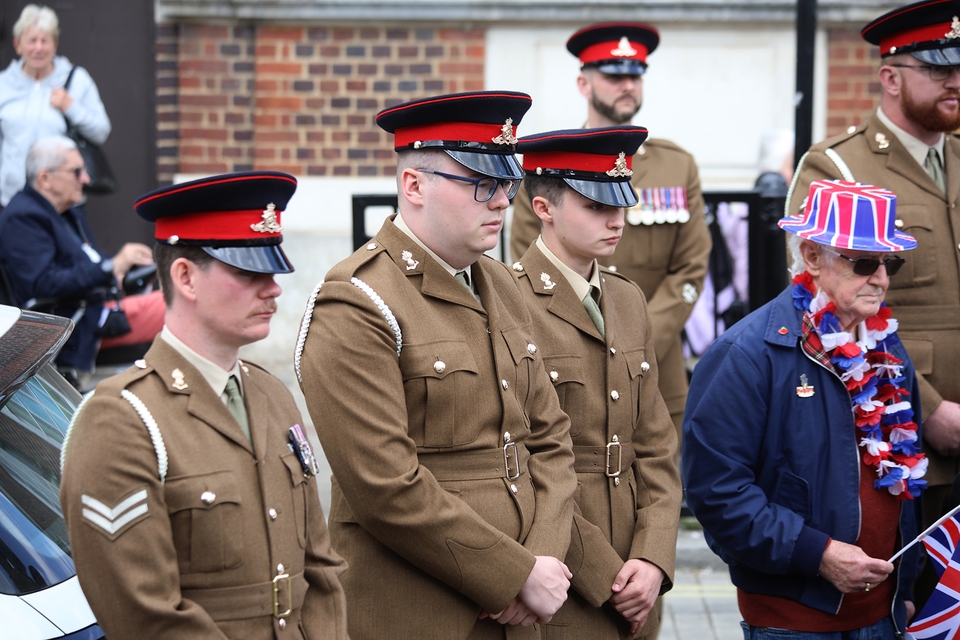
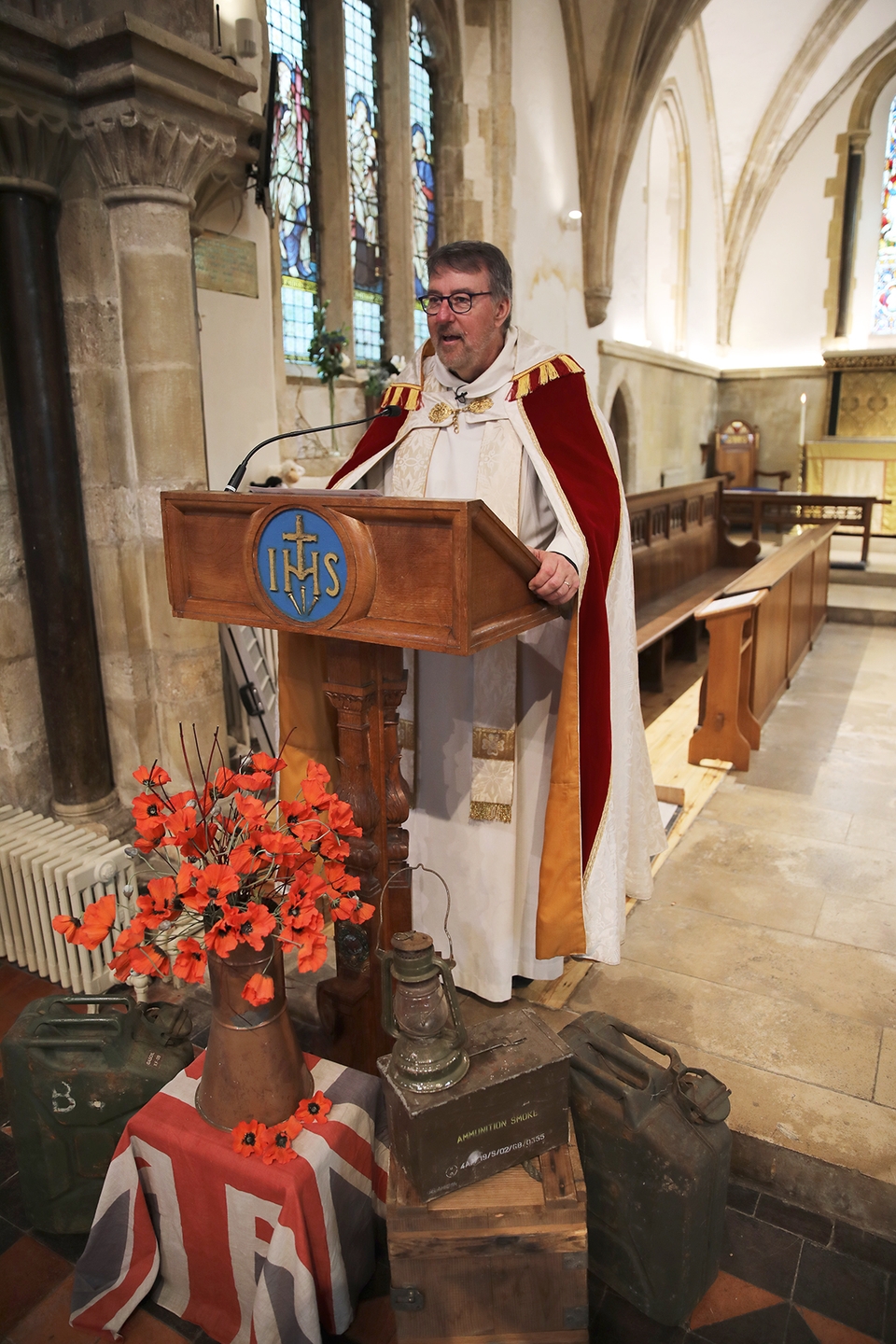
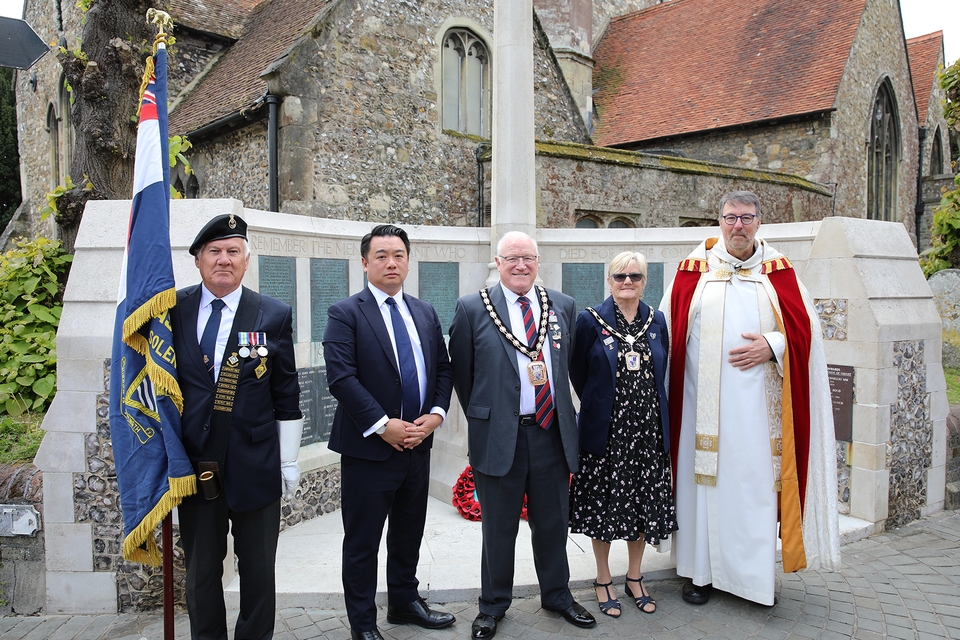
Canon Tom Kennar, the rector of St Faith’s Church, Havant, said: “Many of us have marked the 80th anniversary of ‘Victory in Europe’ Day. But it’s not been triumphalist. It’s been more about silence and remembrance, rather than fireworks and ticker tape. We remembered the victory of people who did what had to be done – often at unimaginable cost – so that something worse would not prevail.
“We remember the ordinary men and women of Havant, who left these streets and fields to defend freedoms we hadn’t realised were fragile until they were under threat.
“War is always a sign of human failure. Sometimes it is necessary. Sometimes noble. But it always causes suffering. I believe in a God who doesn’t choose sides in a battle, but is stubbornly committed to bringing good out of evil.
“I believe in a God who, even in the darkest trenches of human cruelty, planted seeds of hope and redemption. And some of those seeds did bloom after the Second World War.
“Amazingly, Europe – bloodied and burned – chose not revenge, but reconciliation. Germans and Frenchmen, who had slaughtered each other twice in 30 years, decided to build something together instead. The European Coal and Steel Community became an unlikely foundation for peace. Christian Democrats saw the moral need not just to avoid another war, but to live as neighbours. It was politics, yes, but it was also grace.
“Here in Britain, too, there was a sense of moral reckoning. We had been through rationing, bombings, evacuees, grief in every street, but somehow emerged with a bigger sense of community. From that, we saw the birth of the NHS, the expansion of welfare, the commitment to housing and education. Not perfect, but a real attempt to say: if we can fight and die together, perhaps we can live together a bit better, too.
“And anytime society takes a step towards healing, dignity, justice and peace, we’re aligning ourselves with God’s dreams for his world. There has been real progress over 80 years.
“We honour the dead best not by polishing their medals but by living their legacy. So as we lay our wreaths, let’s also pledge ourselves anew to the things that make for peace, and to the God who calls us – still – to love our enemies, to welcome the stranger, and to beat our swords into ploughshares.”